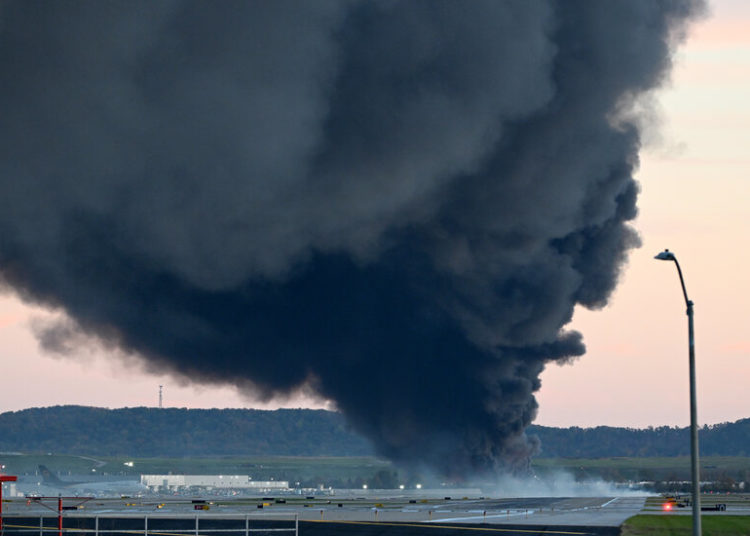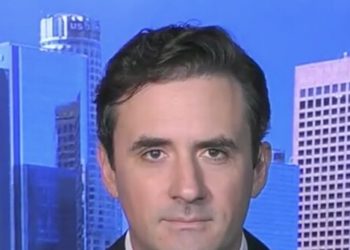It started with a text in late January: “Call me.”
I was in the Sonoran Desert, fleeing the Pacific Northwest’s winter gloom, and I pulled into a gas station to make the call.
“All work on the National Nature Assessment is to stop,” a Trump White House representative on the other end said. “Immediately.”
For over two years, nearly 200 other scientists and I had been working on the first full accounting of nature in America: an extensive report on its role in our health, economy and well-being. Now, with the revoking of a Biden executive order that called for the assessment, it was seemingly over.
Like thousands of scientists who have landed in the cross hairs of politics since President Trump took office again, my colleagues and I felt the deep pain of this sudden cancellation. I don’t believe we were singled out. We were just collateral damage in a broader political battle that reversed a dozen Biden executive orders.
Somewhere between the desert horizon and the chorus of the U2 song “Stuck in a Moment You Can’t Get Out Of” looping in my mind, it hit me: I had to shake off the despair and get myself together. The project needed to continue. And so with encouragement from friends and mentors, my collaborators and I began reaching out — to potential partners, funders and publishers.
What we found wasn’t just financial support. It was energy. It was courage. People understood the urgency and the opportunity. And together, we began to reimagine the work not just as a continuation of what had been cut short but also as something new and more alive. A rigorous, independent effort to tell the story of nature in America.
We created United by Nature, an initiative to provide evidence-based, nonpartisan insights into the changing state of nature across the country. The effort will include the first independent assessment, to be released in July 2026, of how nature in the United States is doing and how it supports our health, security, culture and economy.
When knowledge is threatened, don’t just mourn it. Build around it. Not with rage but with the kind of resolve that moves through spreadsheets and shared documents, late nights and collective purpose. Because science is only as resilient as the people who refuse to let it die.
What pushed us forward wasn’t just the science; it was what it pointed to: that the nation depends on nature. And on this Earth Day, that truth feels more urgent than ever.
Whether it’s pollinators on a Midwestern farm, an urban forest casting shade over a city sidewalk or a vast stretch of wilderness that takes your breath away, nature is not just a scenic backdrop. It’s infrastructure. It’s safety, medicine and memory.
Nature is a social glue, increasing city dwellers’ sense of belonging and satisfaction and giving people opportunities to connect. Nature is an economic backbone. In 2023 outdoor recreation alone made up more than 2.3 percent of U.S. G.D.P. — over $639 billion — and supported millions of jobs. Agriculture and the production of food are utterly dependent on healthy ecosystems and provide about 22 million jobs.
Our project shows why it’s so damaging to lose nature at the current rate. Urban development is carving up habitat on land. Roads, neighborhoods and development are isolating people and wildlife populations and limiting their ability to adapt to change.
Wetlands — nature’s sponge to sop up floodwaters, filter what we drink and give home to fish, ducks and other wildlife — now occupy less than 6 percent of the land area in 48 states. That’s half of what existed in the 1780s. These losses aren’t abstract. They have tangible consequences. The demise of nature means lower crop yields, flooded homes, bankrupt fishing businesses, broken communities, more trips to the hospital, crumbling roads and lower home values.
In California’s Central Valley, for instance, groundwater depletion is accelerating, making it harder for farmers to sustain their crops and their livelihoods. In addition to better management, the best solution is ecological. Restoring wetlands can help protect this wildly valuable natural resource.
As nature changes, we need knowledge — not just about what’s disappearing but also about how to build a thriving, more resilient future.
After centuries of scientific research and countless studies, the information is vast, but it’s isolated in silos, fragmented across agencies and disciplines. Without a full view of what is happening in nature, we’re navigating some of our most urgent decisions — on climate, health, equity and the economy — without a full picture of what’s at stake or how to respond.
My colleagues and I are by no means the only scientists to lose our funding recently. The Trump administration has slashed grants for biomedical, extreme weather and climate science research and more. How can scientific efforts like ours keep moving forward in the face of strong headwinds?
We can’t do it alone. Nonprofits, businesses, academic institutions and governments need to help build the scaffolding, and philanthropy is needed to fill funding gaps. We’ll need scientists from every corner of the country, Indigenous knowledge holders and everyone who cares about nature, wisdom and the future to band together.
I’ve also learned not to let urgency erode credibility. When a project is threatened, the instinct is to rush, to salvage, to quickly publish something online. But we didn’t. We knew trust would require peer review, transparency and space for people to engage and critique. That’s why we sought the time and resources to make sure the work delivers.
When we understand nature, we can shape a future in which people and places thrive. In the shared act of choosing to care, we can find a way forward. One rooted in fairness, shaped by resilience and elevated by hope. Even when institutions falter, the mission doesn’t have to.
Phillip Levin is the director of United by Nature and a professor of practice in the College of the Environment at the University of Washington.
The Times is committed to publishing a diversity of letters to the editor. We’d like to hear what you think about this or any of our articles. Here are some tips. And here’s our email: [email protected].
Follow the New York Times Opinion section on Facebook, Instagram, TikTok, Bluesky, WhatsApp and Threads.
The post My Research Under Trump Started Unraveling With a Text That Read: ‘Call Me’ appeared first on New York Times.




